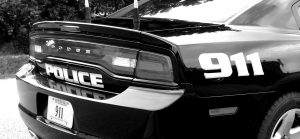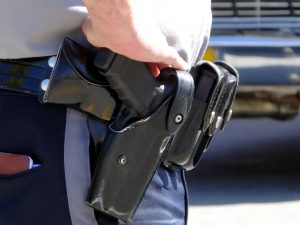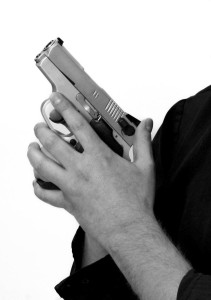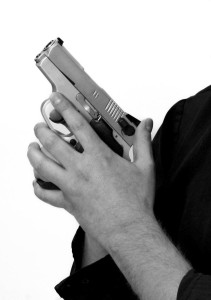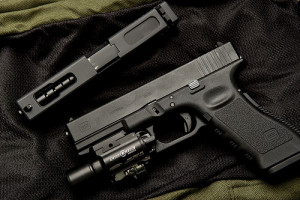A Chicago man out on bond was arrested last week and charged with unlawful possession of a weapon by a felon, cocaine possession and marijuana possession. The defendant was arrested after Sheriff’s Office personnel noticed crack cocaine on a plate on the defendant’s dining room floor; a subsequent search uncovered a fully loaded AK-47 and a .357 revolver and marijuana.
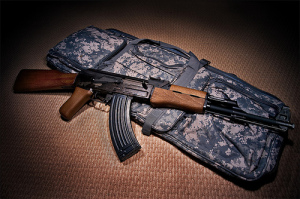
Search Incident to Electronic Monitoring Violation
Sheriff’s Office personnel came to the defendant’s home after his electronic monitoring device indicated that he was out past curfew. Upon arriving, Sheriff’s Office personnel determined that the defendant had had a legitimate reason for having left the residence. They then entered his home.
At this point you may be thinking, “Wait, don’t the police need a search warrant to enter a person’s home?” Under normal circumstances, you would be correct. Except in certain instances – such as when an officer has probable cause to suspect illegal activity – a police officer may not search a person or his home without first obtaining a search warrant from the court.
But in this case, the defendant was on electronic monitoring as part of his bond requirements for an unrelated drug possession charge. And in order to participate in electronic home monitoring, defendants must consent to allow Sheriff’s Office personnel entry into their home at any time. So when officers showed up at the defendant’s door, he had no choice but to let them in, or else risk being in violation of the terms of his release.
Now this does not mean that officers had the right to search his home. And in fact had they completed a search of his home, after determining that the defendant was authorized to have left the home, the drugs and gun paraphernalia they uncovered would likely be inadmissible in court. Unfortunately for the defendant, the crack cocaine was sitting right there, in plain view on the defendant’s dining room floor – and police officers do not need a warrant of any kind to make an arrest for illegal activity being conducted in plain view.
Once the defendant was arrested for possession of crack cocaine, the police were authorized to search the remainder of his home as a search incident to arrest. This doctrine permits law enforcement to conduct a search to make sure there are no weapons in the defendant’s immediate control that could be used to harm officers and to uncover additional evidence of illegal activity related to that already uncovered.
Chicago Conditions of Release
This case helps illustrate how an experienced defense attorney can skillfully negotiate anything from conditions of release to a plea deal with probation, but in the end that time and effort can be quickly undone if the defendant does not use common sense and stays out of trouble. This is particularly true when the defendant is release on electronic monitoring, where part of the conditions of release include consent for law enforcement officers to enter the defendant’s home at any time.
For this particular defendant, and many more like him, it is going to be that much harder for his criminal defense attorney to successfully negotiate a similar bond release, and bolsters the prosecution’s case for the initial drug charge. The criminal defense attorney and the defendant are a team working to achieve the best possible result, whether that is an outright dismissal of all charges, an acquittal, or a reduction in charges or reduced sentencing. But in order for the criminal defense attorney to be successful, the defendant must not do anything to jeopardize his defense.
Continue reading
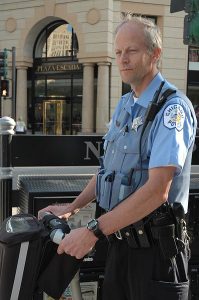
 Chicago Criminal Lawyer Blog
Chicago Criminal Lawyer Blog



